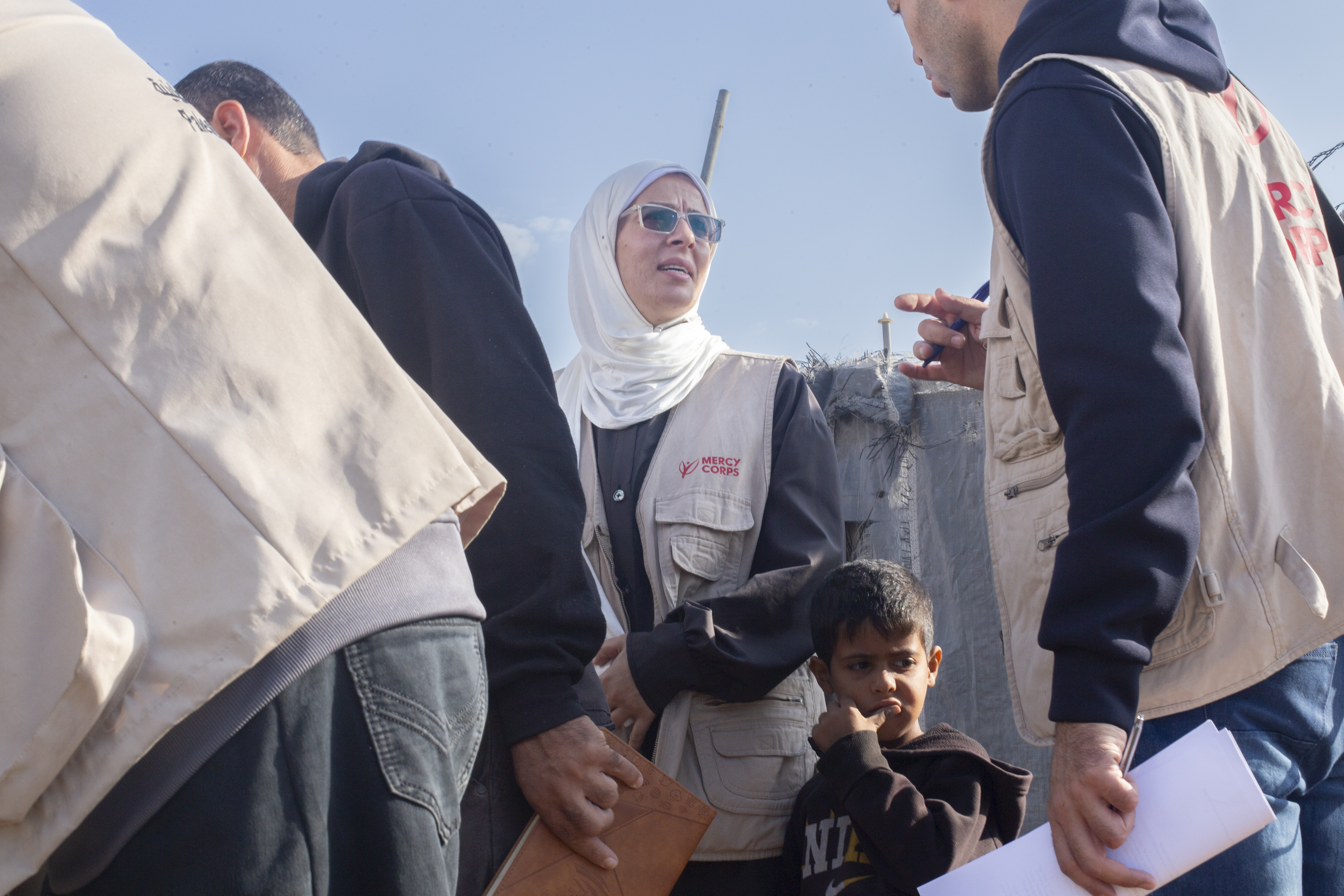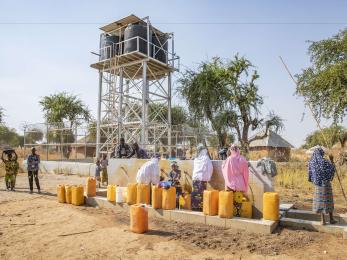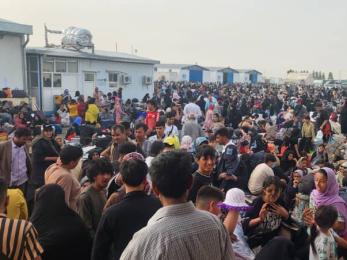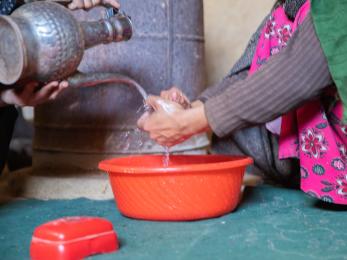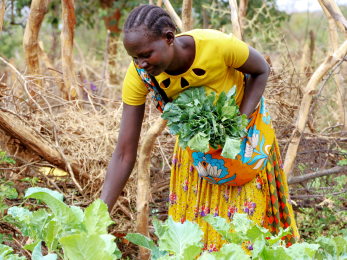Breadcrumb
Access to clean water, sanitation, and hygiene
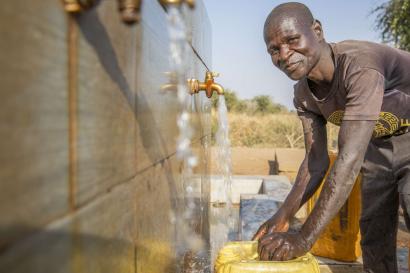
Mercy Corps works with communities across the globe to increase access to clean water, aiming to meet the rising challenges that climate change and the inequitable control of resources has on freshwater resources. As the frequency and intensity of natural disasters rise and the availability of clean water falls, the need for lasting, scalable solutions grows in order for communities to cope amid crisis, adapt to emerging challenges, and thrive into the future.
-
4 bil.
-
2 bil.
-
3.6 bil.
Working alongside our partners and communities across the globe, Mercy Corps reached more than 8.3 million people in 2023 with programmes that improve people’s access to clean water. The impact of water access extends beyond the health of people—it’s fundamental to a community’s ability to grow nutritious food, improve livelihoods, and build resilience against the consequences of the climate crisis.
Delivering solutions to cope during crisis
Mercy Corps rapidly responds in communities grappling with emergencies, providing lifesaving access to water, sanitation, and hygiene services. Our team also works with communities to minimize disruptions of water services and to ensure local partners are able to sustainably and reliably continue providing clean water for the long term.
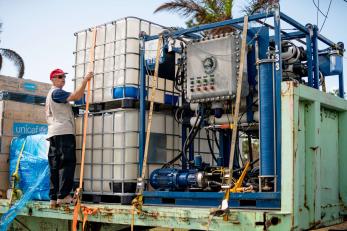
After Hurricane Dorian—one of the strongest Atlantic hurricanes on record—pummeled the Bahamas in early September 2019, our team delivered essentials like clean water and hygiene kits to thousands of people. In addition, Mercy Corps partnered with Mission Resolve Foundation and the local utility to not only maintain but also expand services to cover the entire Grand Bahama island, serving a population of nearly 400,000 with safe, clean water services.
Together, Mercy Corps and the Grand Bahama Water Utility installed, operated, and managed a large reverse osmosis plant for a year before the utility company resumed control of the plant on its own to continue delivering sustainable water services.
Adapting to a changing climate through conservation
In communities where the climate crisis is shifting environmental conditions, intensifying disasters, and withering natural resources, we work alongside communities to build up their operational and financial capabilities in order to implement sustainable water solutions in rural and urban areas. Our partnerships with community members and local utilities power programmes that promote water conservation and grow resilience against climate threats.
In Jordan, one of the most water-scarce countries in the world, Mercy Corps worked with farmers to improve irrigation techniques that boost efficiency and save water. Our team also developed a street art campaign to grow public awareness of the depleting water supply and to spark conservation efforts on an individual level. We held community workshops to gather ideas and come up with the concepts people wanted to see painted in their neighbourhoods. We then worked with Jordanian and international artists to create murals with messages promoting water conservation.
The murals have been so well-received that the country’s water company, Miyahuna, commissioned a set of artwork for their water towers and reservoirs. This partnership has helped further our reach, reminding community members that everyone can take climate action today and shape what’s possible tomorrow.
Forging a path for communities to thrive
Working with water service providers and households, Mercy Corps is supporting communities to move beyond crisis by investing in their own water security. Together, we are building local capabilities and scaling sustainable, innovative solutions that broaden our impact and make a meaningful difference in the lives of millions of people.
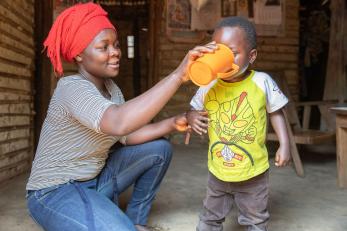
In the Democratic Republic of Congo, where conflict, flooding, and volcanic eruptions disrupt access to clean water and threaten the stability of services, we undertook one of our largest ever infrastructure programmes. Connecting nearly one million people with safe drinking water, the multi-layered approach of the IMAGINE programme rebuilt the water network in Goma and Bukavu and leveraged public-private partnership to improve the governance and management of the system by community members.
The programme is working to alleviate health and safety challenges communities face in this region of the Democratic Republic of Congo. The increased access to clean water has helped to keep children in the region safe from waterborne diseases. It has also reduced safety risks for women and girls who traditionally have the dangerous chore of walking far distances to get water. With strengthened water security, families are better able to grow prosperity and shape a brighter future for themselves.
